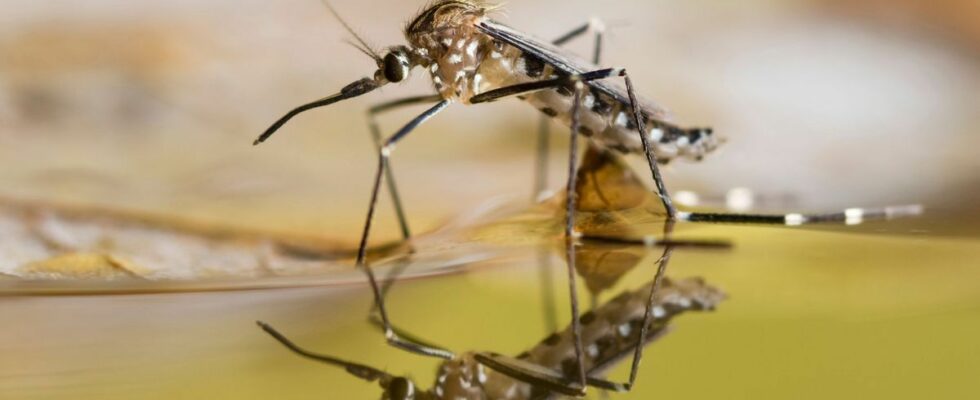Published on
Updated
Reading 2 min.
Every summer, they come back to bite us on the terrace of a café or in our sleep. Every year, mosquitoes come to spoil the beautiful days, so much so that we find ourselves wanting to simply eradicate them. But these insects play a much more important role than we imagine in our ecosystems. Explanations.
Mosquitoes put our patience to the test with their buzzing and especially their bites. Because, when these insects feed on our blood, they inject us with their saliva. The latter is anesthetic and anticoagulant, but also hives. This is why mosquito bites cause redness, itching and other minor discomforts. But in some cases, they cause much more serious symptoms.
Indeed, mosquitoes can carry viruses and microscopic parasites that cause serious or fatal diseases in humans. These include dengue fever, chikungunya, Zika virus disease and malaria, which is responsible for 608,000 deaths in 2022 alone, according to theWorld Health Organization. Generally speaking, the mosquito is the most deadly animal for humans.
It is therefore easy to understand why some people would like to make these insects disappear from the face of the Earth. But that would be a mistake. First of all, we are used to talking about mosquitoes. But this is a generic term designating 3,500 species of insects, most of which feed on floral nectar. Barely 6% of mosquitoes are hematophagous, that is to say bloodthirsty biters and suckers, as recalled the BBC. And among them, only females covet the blood of vertebrates to complete the maturation of their eggs.
In their search for nectar, mosquitoes pollinate the flowering plants they visit. In this way, they participate in the reproduction and dissemination of a multitude of plants. Indeed, researchers from Simon Fraser University in Canada state in a studypublished in 2016 in the journal Arthropod-Plant Interactions, that mosquitoes are generalist pollinators. In other words, they are able to pollinate several plant species, which makes them particularly important for biodiversity and ecosystem resilience.
Towards a “speciesicide”?
Mosquitoes are also an essential link in the food chain. They are a source of food for many animals, including bats, birds and frogs. This applies whether they have reached adulthood or are still in the larval stage. However, no predator specifically depends on mosquitoes for its survival. The forced and massive disappearance of these flies should therefore not, in theory, cause a mass extinction. But some ecosystems could be disrupted by this phenomenon, such as that of the Arctic tundra, where mosquitoes thrive.
While it would be unwise to eliminate all of these insects, scientists are in favor of the extinction of some types of mosquitoes, such as Aedes albopictus (the famous “tiger mosquito”), as well as Anopheles gambiae (vectors of malaria). This is the case of British biologist Olivia Judson who, in a Tribune in the New York Times in 2003, explained the benefits of “specicide” (the voluntary extinction of entire species). This radical measure would, according to her, save millions of human lives.
Other researchers are conducting research to modify the genetic characteristics of mosquitoes, thereby reducing their disease burden. In recent years, agents of the World Mosquito Program consortium have organized regular mosquito releases Aedes aegypti infected with “Wolbachia”, a reproductive parasite that prevents the transmission of pathogens such as the dengue virus or Zika. The goal? Deploy this bacteria in the Aedes aegypti mosquito population to make them less deadly. Maybe, in this way, we will finally reconcile with mosquitoes.

